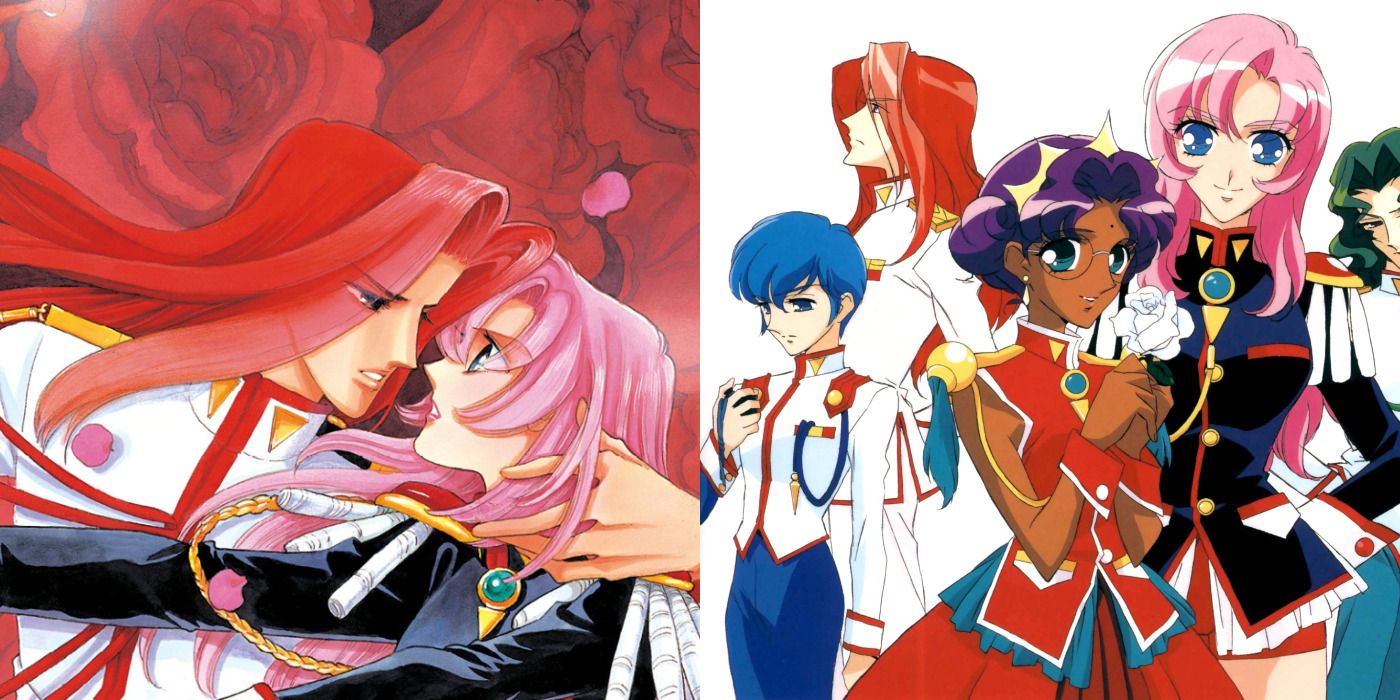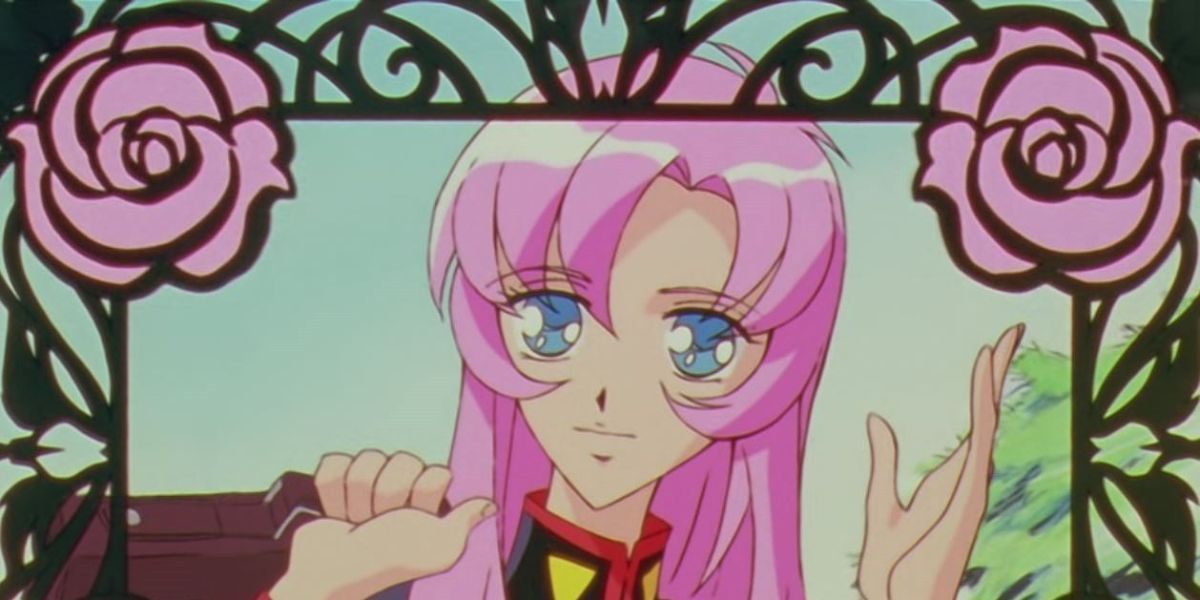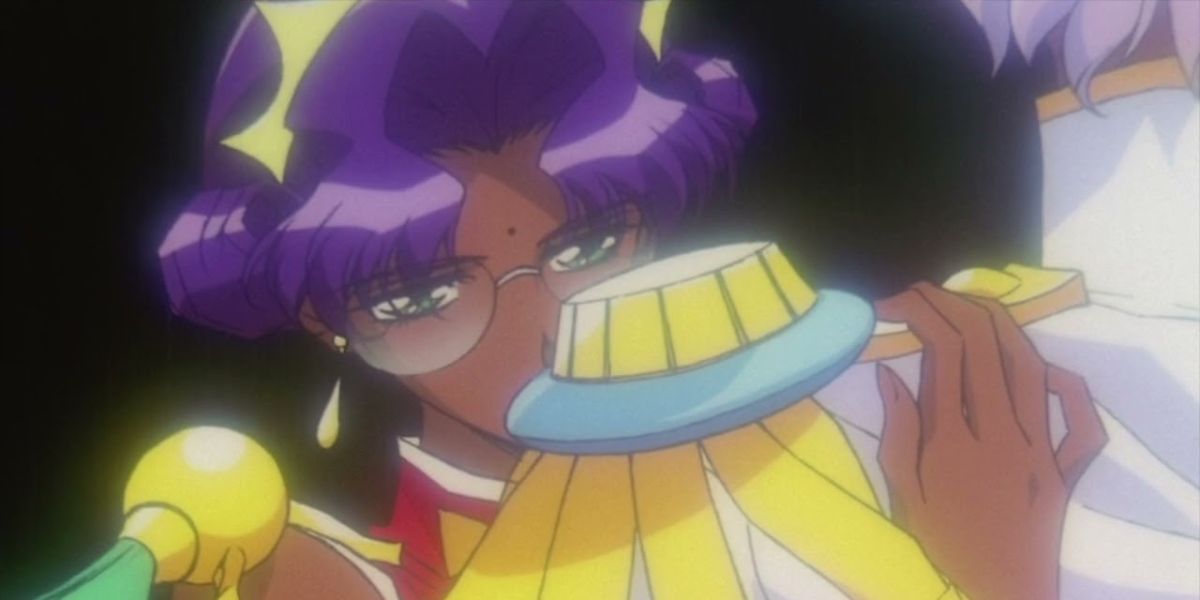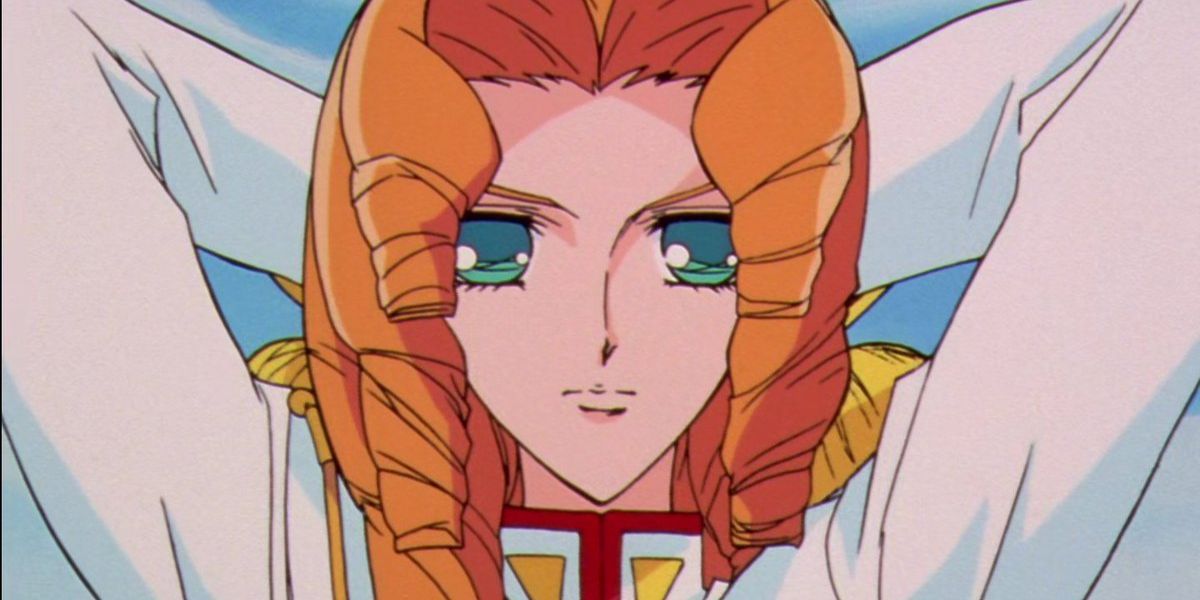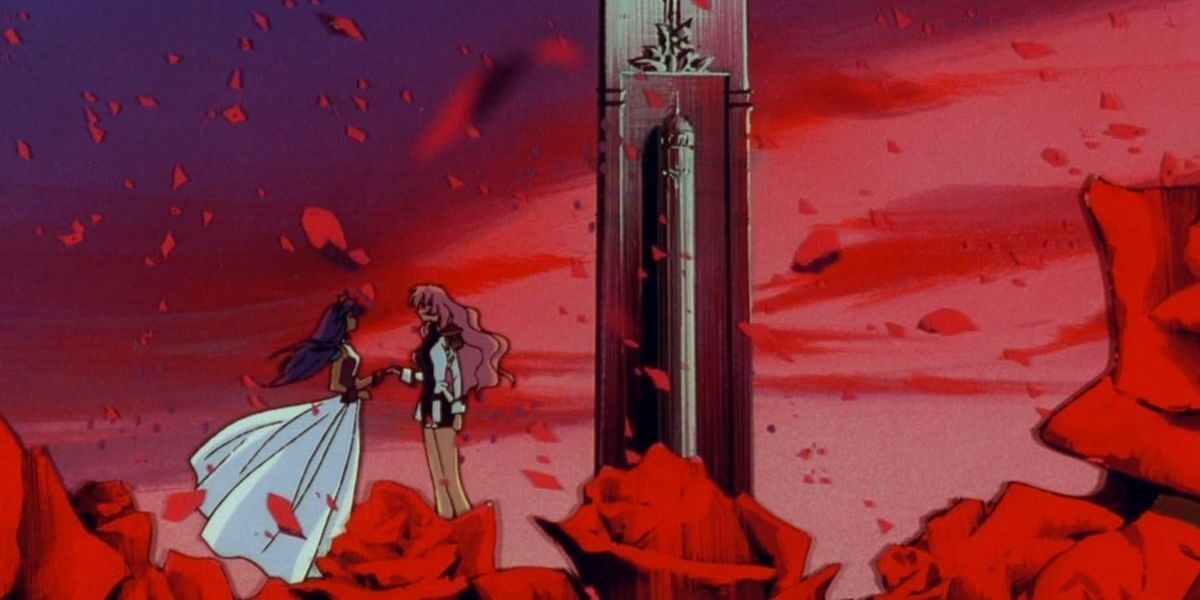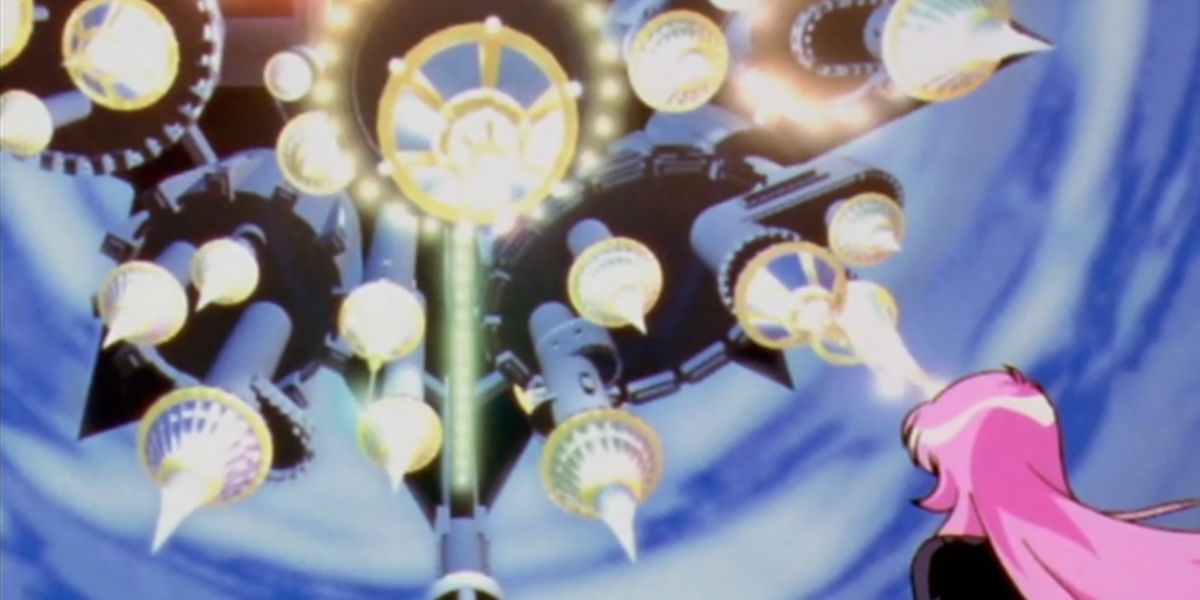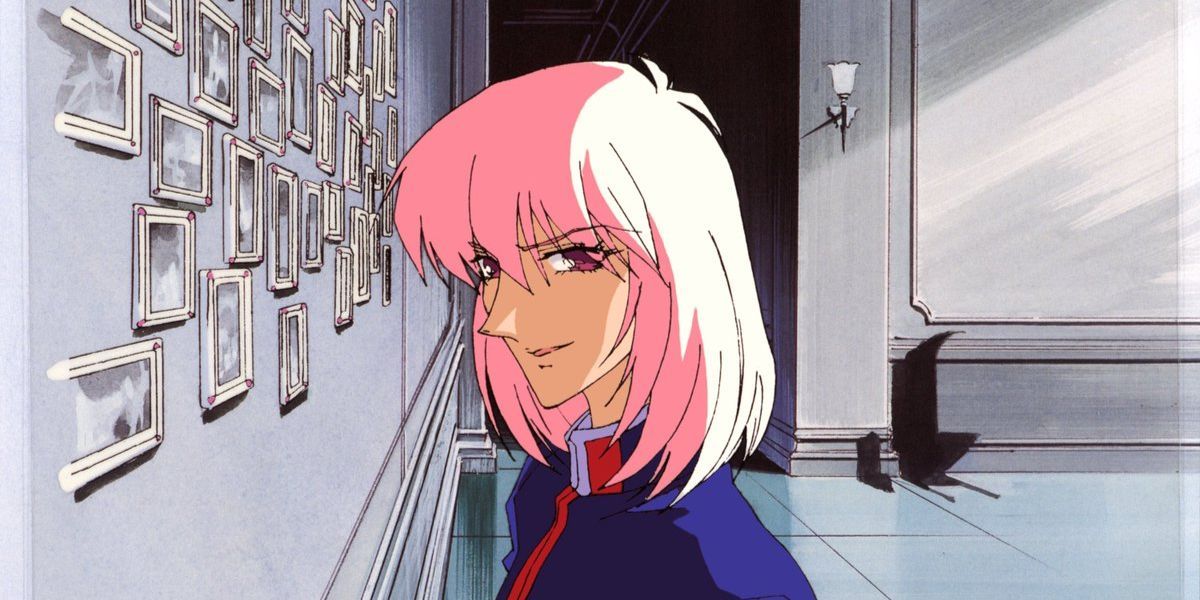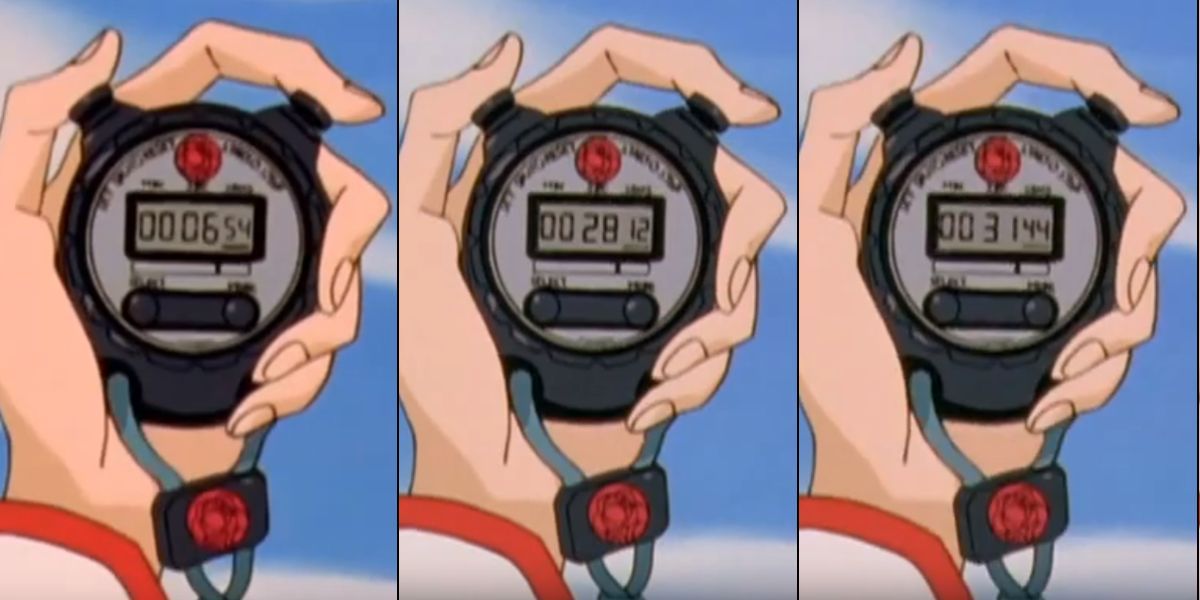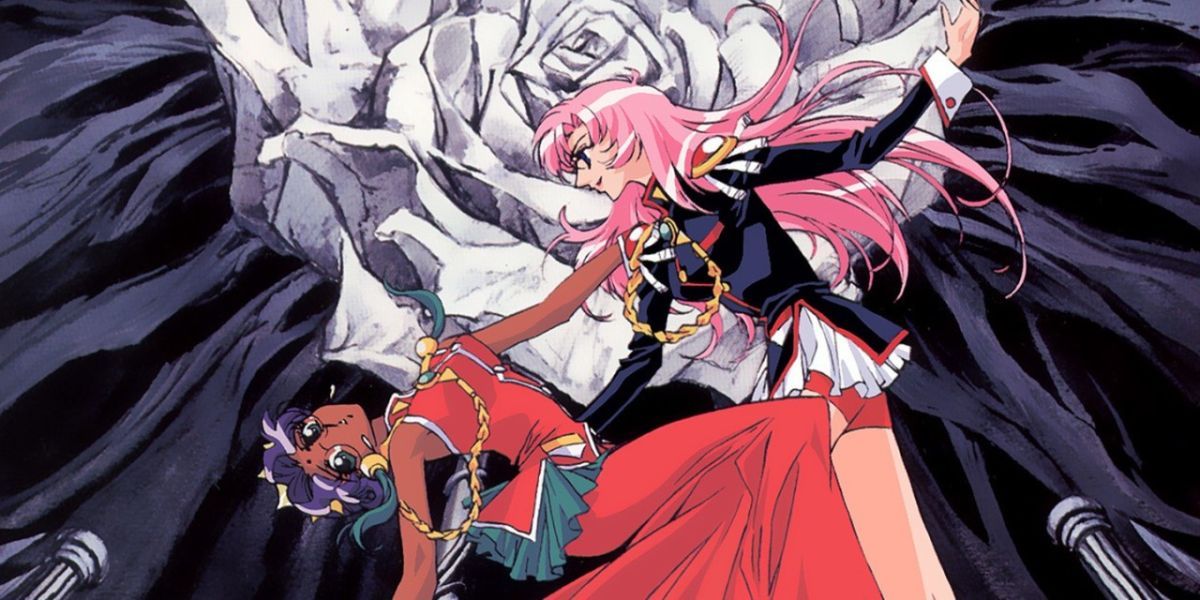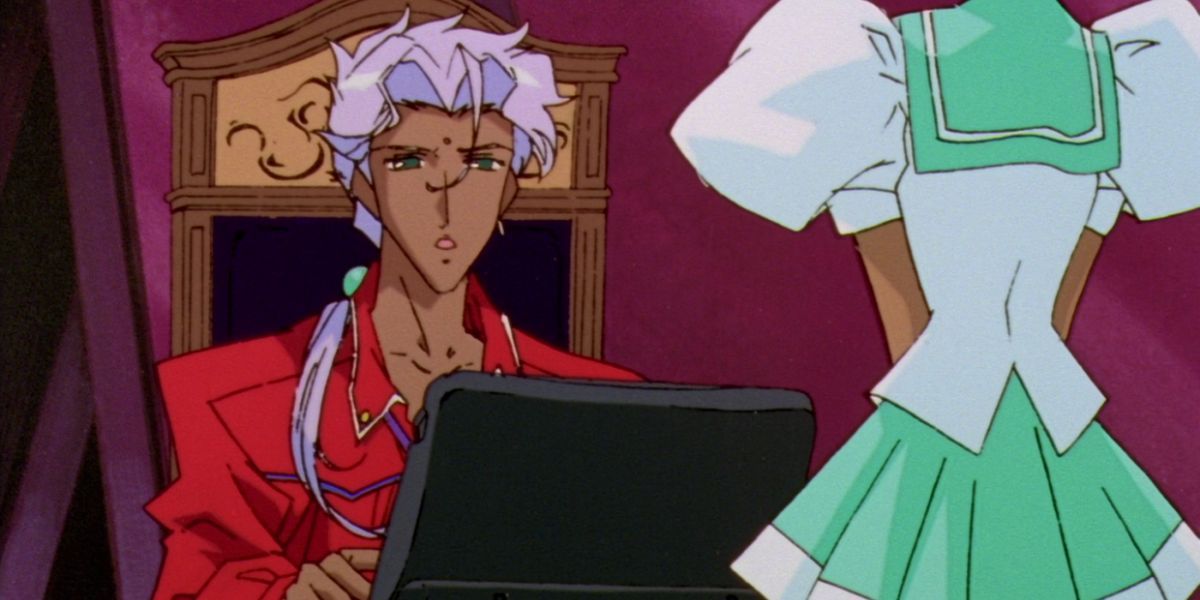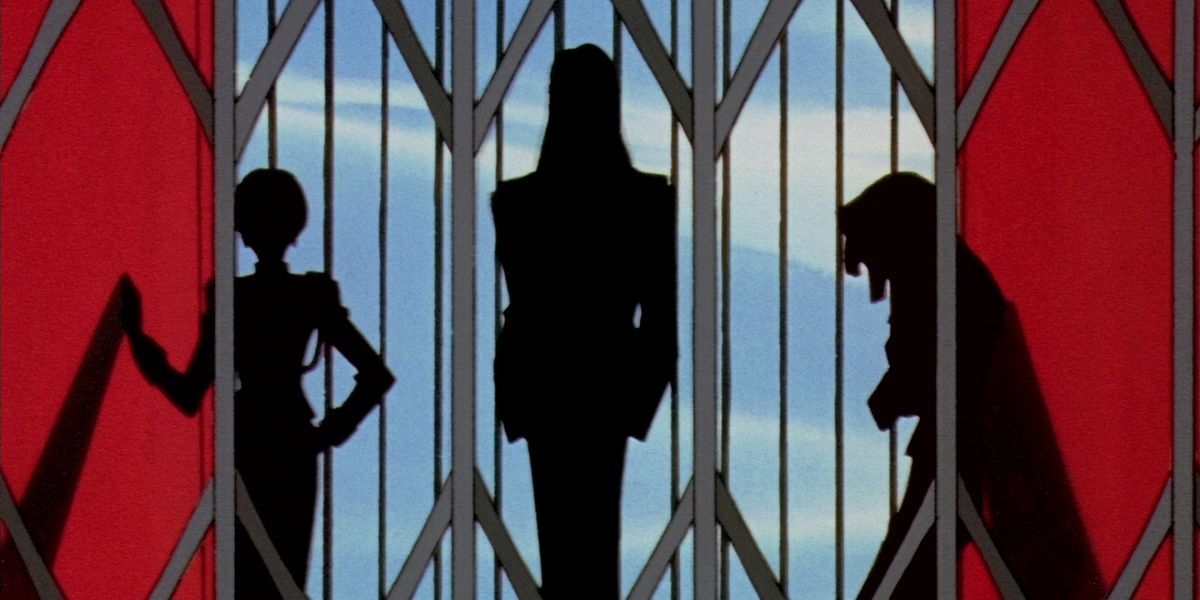The 1997 anime series Revolutionary Girl Utena is regarded as a classic in anime circles thanks to its boldness when it comes to tackling themes of sexuality, gender identity, and the pressures of social expectations, but it's also a show that doesn't reveal many of its secrets without a fight. Utena is deliberately ambiguous with its presentation, allowing the audience to do the bulk of the work when it comes to deciphering the myriad themes and symbols scattered throughout the text.
This, of course, has led to the endless generation of some fan theories that are far-fetched and fascinating in equal parts. For those trying to make sense of Utena, try these on for size. They might help, or they might just add to the confusion, but both of those possibilities are happy outcomes.
Color Symbolism
One of the elements of Utena's presentation most recognized by fans and first-time viewers alike is its use of color. Roses adorn nearly every shot, whole scenes are blanketed in evocative hues, and each main character the audience meets has a clearly established color scheme. It's pretty clear that rosy colors and literal roses are there to set a romantic tone, but is there a deeper meaning to some of the other colors?
Some have hypothesized that each character has a deliberate symbolism associated with their color scheme (Saionji is green with jealousy, for example), drawing evidence from floriography and color theory to prove the point. Animation is a very deliberate medium, so maybe there's something to this one.
Is Anthy A Villain?
The character of series deuteragonist Himemiya Anthy is oftentimes a contested subject. It's clear that she's critical to the progression of the plot, given that she houses the otherworldly power of Dios, but what exactly it is that she wants for herself is obscure.
Some have speculated that beneath Anthy's aloof and removed disposition, she's actually plotting against Utena. She does seem to aid Akio after all, and the events of the final episode of the series seem to cast doubt on what her intentions were from the beginning. Others contest that Anthy has had her agency stripped away by her position, and is, therefore, a victim of circumstance in need of assistance rather than a villain.
Juri Is A Prince
One of Utena's central themes is that of a concept of "princehood," in this context, a real or imagined status one can have as a noble and selfless individual. Notably, this is the ideal that Utena herself is striving towards, having been inspired by the "prince" who rescued her from her childhood grief before the events of the series.
Presumably, it is this princely aspiration and selfless defense of Anthy that allows Utena to inherit the power of Dios and win her duels. But what about Juri? Although Juri is presented as less sympathetic than Utena, there are some similarities between them, the most notable of which being Juri is also a duelist to protect her love interest, which might have made her another candidate for Dios' power.
World Revolution?
The entire story of Revolutionary Girl Utena centers around the pursuit of the power to revolutionize the world. What exactly this power is is unclear, and what's even more unclear is what exactly is meant by "world revolution." It's all pretty opaque, but the audience gets a sense of how important it must be by way of the constant struggle the characters undergo to obtain it.
What about Utena, then? Did she revolutionize the world at the end of the anime? More than that, it seems clear that she has succeeded in freeing Anthy, presumably also breaking the duel cycle by doing so. Does that constitute a world revolution? It's probably intentionally left up to interpretation.
Dios Isn't Helping Utena
Throughout the events of the series, Utena is able to win most of her duels handily, thanks to her innate skills and to the assistance of the (possible) divine power of Dios. During a duel, Utena might find herself on the ropes, but an apparition of Dios materializes which appears to give her the power to strike down her opponent and emerge victorious.
But what if the power of Dios isn't all it's cracked up to be? Dios materializes from an inverted castle of light, a castle which Touga explicitly refers to as an illusion early on in the series. This has led some to believe that the apparition of Dios may have been yet another illusion concocted by Akio to further his own ends, rather than a legitimate manifestation of otherworldly power.
Mikage Was Undead
The Black Rose arc is the second major story arc of the Utena TV series, and it deals with the complicated legacy of Souji Mikage and his efforts to bring about a world revolution on his own terms. Those efforts were met with a violent and tragic end, but that hasn't stopped Mikage from continuing to pursue revolution through subterfuge during the arc.
Only one question, though, is Mikage actually dead? His colleagues died in the fire that destroyed Nemuro hall, and he himself hasn't aged a day since the arson took place. Is it possible he perished in that fire as well, and is carrying out his old goals from beyond the grave?
Miki's Stopwatch
Student council member Miki is constantly messing around with a digital stopwatch, but why? Direction-wise, the creative team behind the show typically uses Miki striking a key on the stopwatch to punctuate transitions between cuts during the student council meeting scenes, but is it possible that the practice is more than visual playfulness and actually has a deeper meaning?
Some have speculated that series director, Kunihiko Ikuhara, simply included the motif as a red herring to confuse fans looking to dig too deep, but others have suggested that the stopwatch symbolizes Miki's desire to resist the passage of time -- which seems to square with the excessive nostalgia he holds for his childhood with his sister.
Utena Herself Isn't Real
A common interpretation of Utena's story is that Anthy is victimized by her very existence in Ohtori Academy. As a receptacle for the power of Dios, she's treated as little more than a vessel for that power by most of the characters of the show, reducing her to a kind of object in the minds of the cast. Utena is different, though, and seeks to free Anthy from the prison of the Academy.
But what if Utena doesn't exist in the way that the audience is lead to think she does? What if Utena is actually a projection of Anthy's mind, using the power of Dios, in order to save herself from the mental prison she finds herself trapped in? It makes a degree of sense, thematically: Utena does seem to manifest the strengths and capabilities that Anthy lacks, which allows her to achieve freedom at the end of the series.
Utena Takes Place In A Time Loop
The events of the Black Rose arc, wherein the second set of duels in the series are fought, make it clear that the duels have been going on for a very long time. Mikage's set of deceased duelists clearly suggests that there were those who came before Utena and her rivals, and at the end of the arc after Mikage is defeated Akio is able to cleanly remove the events of the entire arc from the memories of the cast.
The question begged here, then, is: how many times has Akio done this? Characters comment on the fact that Akio appears not to have aged since at least the foundation of Nemuro hall, and if he has the power to wipe memories en masse, what's stopping him from repeating this cycle in perpetuity?
Utena Is An Allegory For Buddhist Metaphysics
Certain schools of Buddhist thought teach that reality as we perceive it is comprised of things that lack essence, or things that do not exist in themselves and only come into being because of their relationships with other, similarly illusory, things. The nature of enlightenment is to see through these illusory things, and to perceive the world as it truly does, or does not, exist -- which sounds kind of like "breaking the world's shell," which is the goal of Utena's student council.
There are some structural similarities as well: repetition is a common rhetorical tool in old Buddhist sutras and commentary and is also deployed with some frequency in Utena to stress ideas of thematic or narrative importance.

